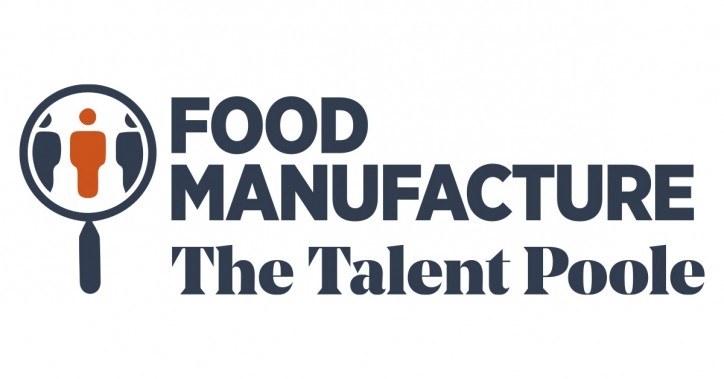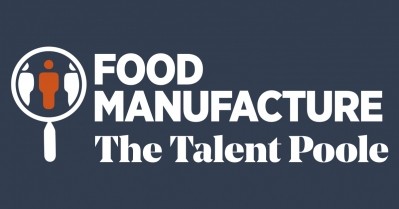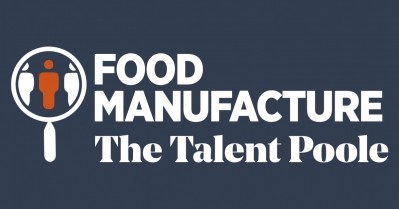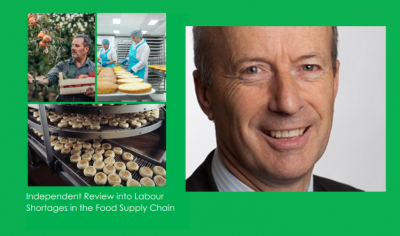The Talent Poole
Embracing diversity

Diversity is a term most often associated in business with commitments to equality, diversity and inclusion (EDI). As such, many food businesses approach the need for diversity as part of their HR policy, or even as part of a corporate social responsibility commitment. This very legalistic approach – the need to comply – may help businesses to monitor and drive change in these areas, but it also runs the risk of leaders missing the real benefits of embracing diversity in its broadest sense.
In this month’s column, rather than hear the views of just one food leader, I am embracing diversity by welcoming perspectives on this important topic from several.
Embracing and encouraging diversity in business can have an extremely positive impact on business success and help deliver truly outstanding results. It can significantly improve decision-making, raise morale and help to engage staff and stakeholders. Kate Halliwell, chief scientific officer at the Food and Drink Federation (FDF), agreed: “Embracing diversity brings with it a variety of perspectives and approaches, creating an environment where individuals can thrive and learn. For example, factory workers are the core of any manufacturing business and they reflect the diverse communities in which they operate.”
Going beyond protected characteristics
The Equality and Human Rights Commission defines nine ‘protected characteristics’ making it illegal to discriminate against someone because of one of these characteristics. However, from a leadership perspective, when welcoming and encouraging diversity we should be considering a much wider definition. As organisational psychologist, Professor Mark Slaski pointed out: “Whether it is experience, personality, values, personal goals, personal circumstances, skills, knowledge, etc…, as leaders, we have to go beyond the classic diversity notions of race, gender, sexuality, disability, etc…, a true leader has the mindset that everyone is different.”
Leaders may have experience but not all the answers
As leaders, we are paid to get to solutions as quickly and as efficiently as possible – using our years of experience to inform our decision-making. This is true, to an extent; relying on a single individual’s perspective to generate new ideas or make decisions, however experienced they are, can become very insular and therefore limiting. Despite what some may believe, leaders are not expected to have all the answers, nor have the super-human capability of being able to see issues from all perspectives. Just valuing and actively welcoming the views and opinions of others in the team and around you can lead to far more considered and sometimes more creative decisions.
Enjoyed reading this? You may also be interested in reading: How accessible is your manufacturing site for disabled workers?
The same applies when troubleshooting – Karin Goodburn, director general at the Chilled Food Association reflected, “No matter how many years’ experience you have, when it comes to troubleshooting in food, it can really help to seek the views of others – I’ve been in situations where I’ve needed to call on the views of our members, for example over a food recall or quality issue, and they will often see things I would never have thought of.”
An open-mindedness to truly listen to others' views not only massively improves the quality of decision-making, but will engage others around you who will feel valued for their opinions.
Goodburn continued: “Over the years I have built relationships – especially through our membership – with experienced professionals who I know I can call on for their views and opinions, and they can call on me.”
The dangers of unconscious bias
It is important to recognise the dangers that unconscious bias can have on the diversity of our thinking. One form of unconscious bias, known as ‘affinity bias’, is the favouring of people who share similar interests, backgrounds and experiences to us. We all do this – it is how we build friendships and form social groups. However, as business leaders, affinity bias can be very limiting. Without robust selection processes, we risk appointing or promoting people ‘in our own image’ – people who think the way we do and who have similar experiences to us. Rather than adding to the breadth of a team’s experience, it can lead to the development of an ‘echo chamber’ where there is no real challenge or offering of alternative viewpoints.
Another aspect of unconscious bias occurs when we take actions or create structures and processes which can unintentionally restrict the involvement of some groups of people. Halliwell noted: “A number of our members are introducing shift patterns that provide flexibility for staff to care for their children and other family members with. For example, opportunities to take off time over school holidays.
“According to a 2021 IGD report, more than three quarters of businesses in the food sector have formalised a strategy to incorporate representation and foster inclusion. A marked improvement from only 55% of businesses in 2019. Not only is this the right thing to do but it may also help tackle some of the significant labour and skills shortages within our sector – from engineers to food technologists to production operatives. It’s a win-win for food and drink companies.”
Divergent decision-making
From the point of view of generating new ideas, most leaders naturally tend to gravitate towards ‘convergent thinking’ – perhaps starting broad but then looking to close down to the desired solution as quickly as possible. As any good facilitator of a brainstorming session will know, even where there may be an obvious solution, it can be highly beneficial to employ ‘divergent thinking’ – purposefully opening up the possibilities first, before ultimately settling on a preferred solution. This may, of course, mean slowing down the decision-making in order to seek others’ diverse views, but it can sometimes deliver astounding outcomes.
Encouraging our leaders of the future
While the diversity profile of leadership in the food sector is improving, the food sector still has a long way to go in terms of welcoming women, younger talent and those from ethic minorities. Henrietta Sameke, regulatory affairs manager at Prinova Europe Ltd reflected: “I’ve generally had a very positive experience throughout my career in the food industry; however, this has largely been down to me and my attitude. I’ve actively sought out networking groups to support me with my career such as through the ‘Women in Food & Farming’ network. They provide an excellent mentorship programme where I can connect with people in the industry from across the world, allowing me to learn and progress.
“I recognise the importance of diversity and play an active role on our company’s DEI Committee. This enables me to raise my voice and provide different perspectives.
“There are so few ethnic minority leaders in the food sector which suggests there is still a lot to do to attract and develop talent from minority groups. This could be achieved by increasing the visibility of the pathways to leadership within minority groups and removing barriers to promotion.”
Halliwell agreed over the importance of role models: “Diversity means providing strong professional role models who can mentor and empower younger colleagues, ultimately shaping a more diverse future workforce. As a woman working in STEM, early in my career I know I benefited from having visible female role models in senior leadership positions showing what was possible.”
Still more to do in diversity
There is clearly more that needs to be done, particularly to increase the diversity in senior leadership roles within the food sector. This was a view shared by all my interviewees but is a comment on the situation from a macro perspective. This column offers ideas and perspectives which aims to stimulate all of us to make small changes. The macro position will change over time, but only if we all embrace diversity in our own leadership environments.
Thank you to all the contributors this month. In the true spirit of diversity, I could not have done it without you.
Read last month's issue of The Talent Poole here, where Jon Poole interviews Ian Noble of Mondelez International on how to be an inspiring leader.
















